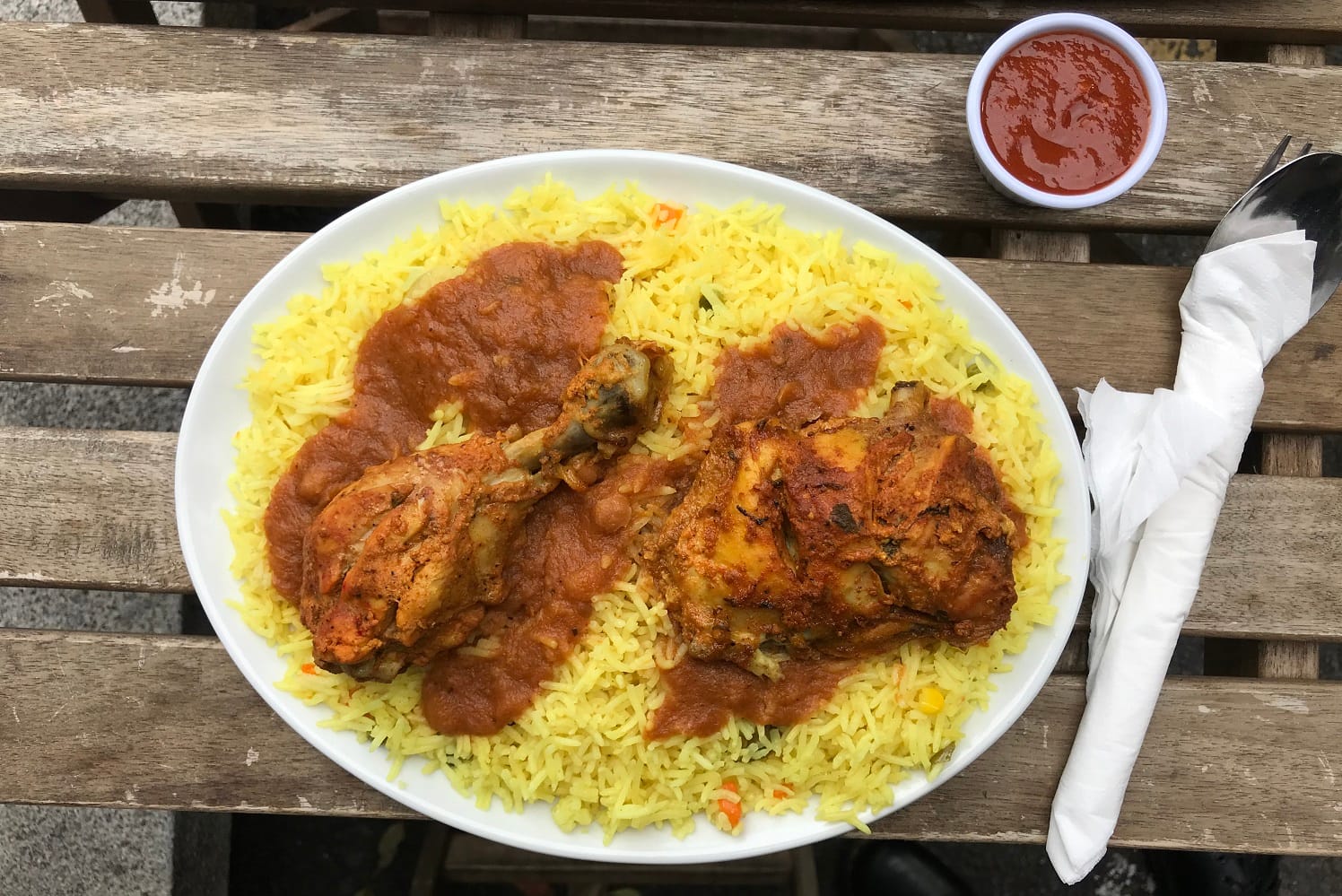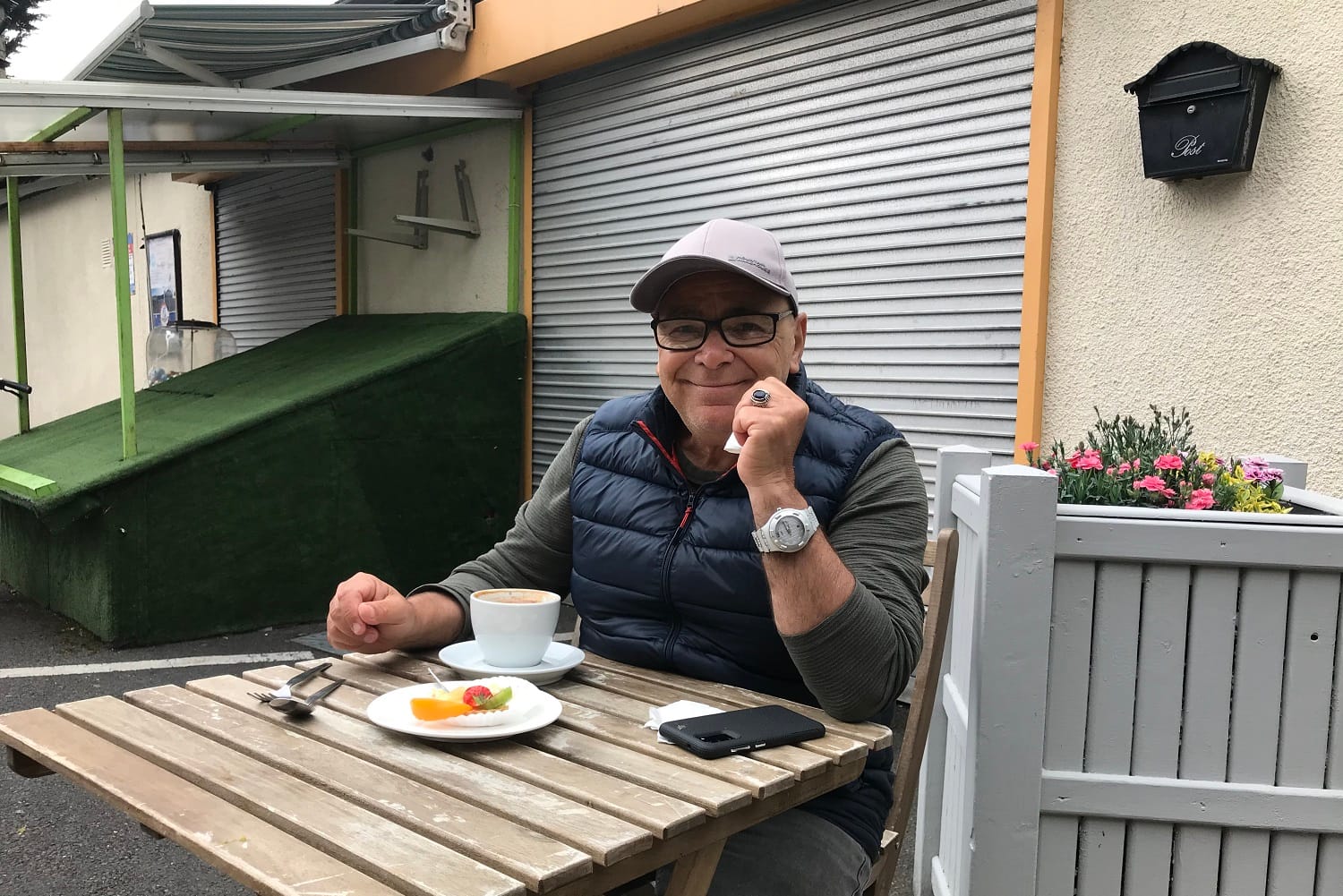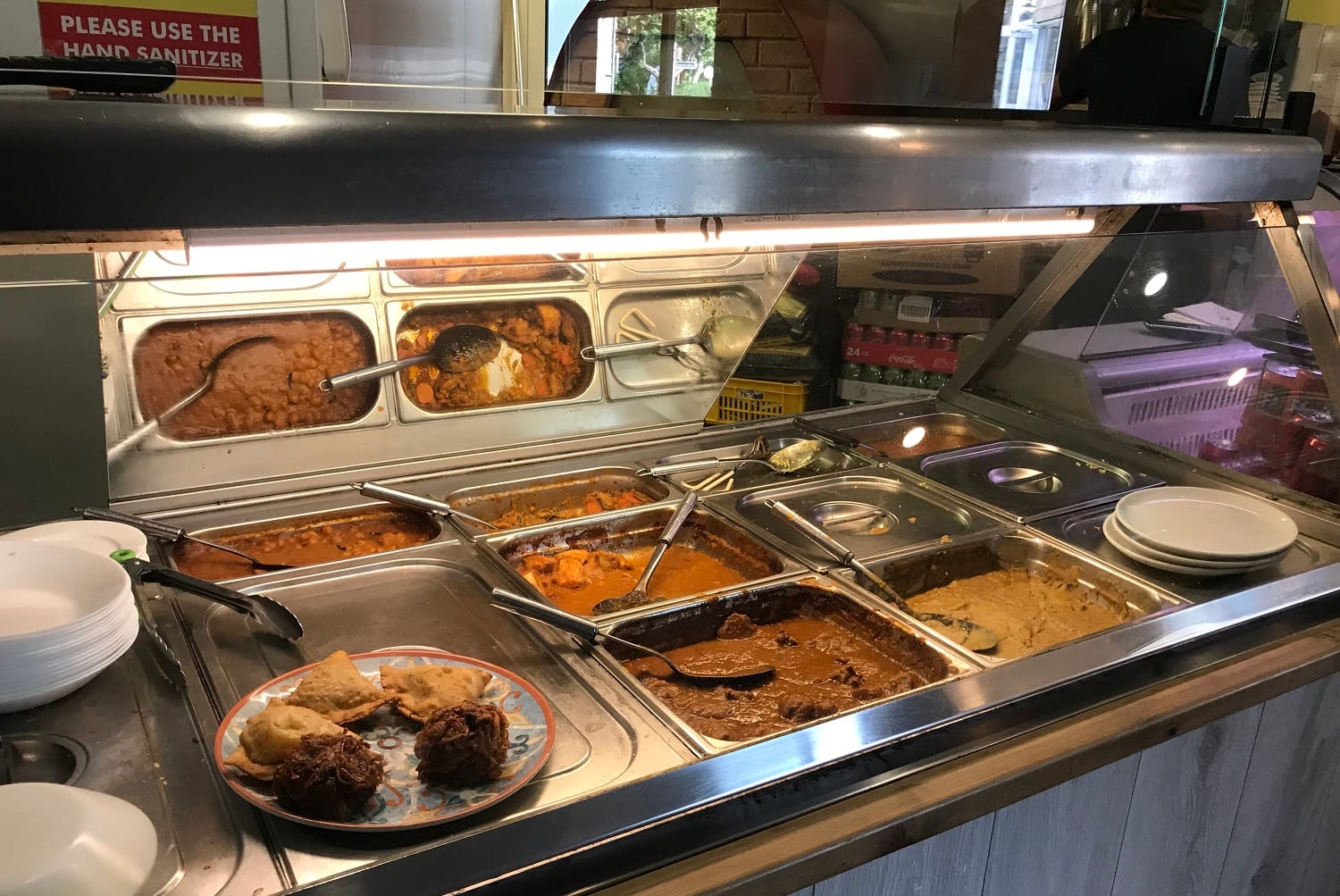What’s the best way to tell area residents about plans for a new asylum shelter nearby?
The government should tell communities directly about plans for new asylum shelters, some activists and politicians say.
What is now Al Khair Restaurant at Dublin Mosque, run by Junaid Yousuf, began in 1985 as a canteen run by his father Mohammed.

People stop to greet Junaid Yousuf outside Al Khair Restaurant, where he is sitting on a recent Friday on a wooden chair, catching the sunlight that spills in the courtyard.
Switching between Arabic and English, Yousuf exchanges pleasantries with those that stop to talk.
Not everyone is here to eat, says Junaid, 32. People also come to congregate, talk, and pray, he says. “It is a focal point.”
The hum of conversation fills the space outside the restaurant, which is sheltered away from busy and broad South Circular Road, sharing an address with the Dublin Mosque, and the headquarters of the Islamic Foundation of Ireland.
Food has been served here since 1985, when the mosque opened in a repurposed Presbyterian church with a big romanesque-style window.
Back then, Junaid’s father, Mohammed, ran the kitchen.
Mohammed, born in Mumbai, learned to be a chef after moving to Pakistan. He worked on cruise liners for years before moving to Dublin in the late 1970s on foot of a job listing.
“It was a long journey from India, setting his roots down in Ireland,” Junaid says.
When it opened in 1985, Mohammed’s kitchen was a canteen, serving subsidised halal meals for worshippers at the mosque. It wasn’t until 2007 that the name Al Khair was used.
Junaid says his older brothers, who went to school on nearby Synge Street, would run down to the mosque to clean dishes on their lunch breaks.
A “proper, proper family-run business”, he says.
Junaid’s early career followed a different path. He worked for a while as the manager at a tech store in Dublin Airport.
After some pressing from his father, Junaid decided in the summer of 2017 to join the restaurant. “He was always a family man. He wanted me close to family,” he says.
Two days before Junaid left his job in the airport, Mohammed passed away suddenly, after collapsing in his home on Dufferin Avenue.
It was upsetting, Junaid says. But, he says, “at the end of the day, we as Muslims believe that everything happens for a reason”.
He had been ready to take up the reins, he says. Otherwise “the family business would have been closed down”.
Mohammed’s legacy lives on in Al Khair Restaurant’s most sought-after dish, tandoori chicken.

“That’s basically the main dish that’s been served here, 30-plus years,” Junaid says. The recipe hasn’t changed either.
Chefs at Al Khair Restaurant cook the chicken in a Zanussi oven, rather than a traditional tandoor, a cylindrical clay oven with a hole at the top.
“That’s the difference,” Junaid says. “It’s quite succulent. Otherwise, it’d be really dry if we put it in the tandoor.”
The restaurant serves two pieces of chicken leg, marinated in turmeric, chilli powder, fresh lemon, garlic and ginger, and baked for about an hour.
The chicken is served on a bed of pilau rice, which is cooked with corn, peas, and baby potatoes. “It’s a really quirky style of making rice,” Junaid says.
A chickpea gravy gives added spice.
It was a dish that Mohammed made on his travels. When he started cooking tandoori chicken in Dublin, it became a staple for him.
Junaid has put his own stamp on the Al Khair Restaurant menu, too, adding new dishes.
Chicken and lamb dishes form the core of the menu. Chicken biryani, lamb biryani and grilled half chicken – a chicken cut in half, cooked in a tandoor – are also popular.
Lamb haleem is Junaid’s most recent addition. Shredded spring lamb cooked with barley, lentils and spices.

On a recent Friday, Fouad Boukourbane sits unaccompanied at a table outside the restaurant, facing the entrance to the mosque.
His phone rings every so often, and on one occasion, a younger restaurant-goer sits at Boukourbane’s table for a brief chat.
He’s just finished eating his portion of tandoori chicken, like he does most Fridays.
Boukourbane lives in Stillorgan and prays at a different mosque, in Clonskeagh.
But he comes to Al Khair Restaurant to eat, he says. “I come for the food on Friday here because it’s my tradition.”
Boukourbane remembers when Mohammed was working the canteen. He’s been coming to South Circular Road for his Friday meal for over 25 years.
“I always get this, nothing else,” he says, gesturing to a plate of tandoori chicken.
“I really like it, you know. The ingredients that he puts in this dish, I want to catch what his father did,” says Boukourbane.
The food triggers memories, says Junaid: “He just comes just for that hit.”
For some Muslim immigrants arriving in Ireland during the 1980s, the mosque and canteen were a first point of contact in a new country, says Junaid.
Once there, it was Mohammed who would welcome those people to their new home, Junaid says.
That’s why Junaid’s father was famous in the community, says Jack Ó Dúill, a regular at Al Khair Restaurant.
He was known not to be profit-oriented, says Ó Dúill. “He was providing a service for the community.”
Mohammed often provided a first meal in the country – and on the house. He would offer a word of advice, a home comfort.
People remember such acts of kindness, says Junaid, and still bring up his father’s generosity. “His hospitable and his charitable nature touched on a lot of people.”
In 2007, the canteen evolved into Al Khair Restaurant. Mohammed hoped to attract customers and expand.
Today, the restaurant does take-aways and offers student deals. The interior of the restaurant has changed too, with a deli-counter display laid out with desserts – baklava, cake and fruit tarts – and hot food.
Yousuf hasn’t lost sight of what the restaurant’s primary function is, though.
It’s a halal food service, there to provide for the community above all else, he says. “That is paramount before we look at business.”

During Ramadan, Al Khair Restaurant normally provides upwards of 300 free meals a day to worshippers who arrive after dark to break their fast.
Stymied by coronavirus restrictions, this couldn’t happen this year. But the meals didn’t go to waste.
“What we did instead was we gave 90 meals a day for homeless people, or for people in direct provision, people in emergency accommodation,” Yousuf says.
The restaurant has also worked with volunteer group People Helping Homeless, providing hot meals.
Giving is central to Junaid’s beliefs, like his father’s before him. “We’re told in our belief that if you give something for the sake of God, you will get it in two-fold,” he says.
With the restaurant closed for much of the pandemic, the past 18 months have been tough, says Junaid.
But he knows how to ground himself. “We have to go back to the belief of why we’re here,” he says. “And essentially, understanding the core purpose of the restaurant being here.”
“The importance of carrying on the tradition and carrying on the legacy of the business… [it] makes you get up in the morning and carry on,” he says.
Get our latest headlines in one of them, and recommendations for things to do in Dublin in the other.